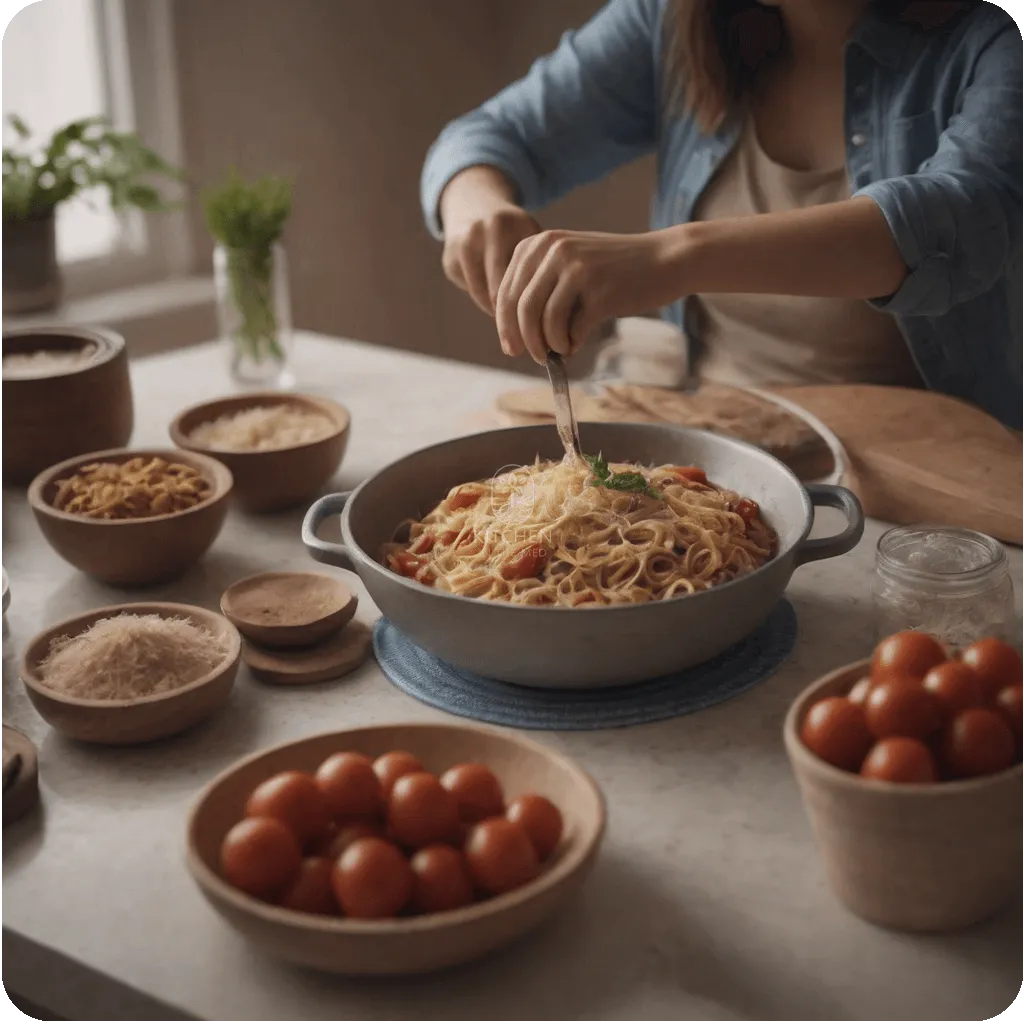Imagine it’s 6 p.m., you’re just home from a long day, and your stomach is rumbling. The fridge door swings open, and the question looms—what’s for dinner? This moment sparks dread for many, but it doesn’t have to. These 30-minute meals are game-changers that deliver flavor, nutrition, and ease without eating up your evening. They prove that good food doesn’t need to take hours.
Looking in the fridge… again
Share this article
Why 30-Minute Meals Are a Big Deal
Thirty minutes is the sweet spot where efficiency meets satisfaction. It’s long enough to create something tasty and nourishing yet short enough to keep your evening intact. In a world of scarce time, quick meals prevent the slide into unhealthy choices like takeout or processed snacks. Instead, you get wholesome options—like a veggie stir-fry or a simple pasta—that fuel you without dragging you down.
This is a game-changer for families. Parents juggling work, kids, and chores can still serve dinner without losing hours. Solo cooks, busy professionals, and students also benefit from enjoying home-cooked meals without needing a chef’s skills or a marathon cooking session.
The real win? These meals free up time for what matters—whether that’s family moments, a favorite show, or just unwinding. I have plenty of articles devoted to this subject.
I believe combining the Mediterranean diet with easy cooking will improve our lives.

Why 30-Minute Meals Are a Big Deal
The Real and Proven Benefits
Scientific studies strongly support the benefits of 30-minute meals, especially in terms of diet quality, time management, and overall well-being.
Research from the Johns Hopkins Bloomberg School of Public Health found that people who frequently cook at home consume fewer calories, sugar, and fat than those who rely on restaurants or processed foods—even when they’re not actively trying to lose weight (Johns Hopkins, 2015).
Studies published in Public Health Nutrition and other peer-reviewed journals (PMC7232892) have also linked home cooking to a reduced risk of chronic conditions like type 2 diabetes.
These findings are especially relevant for busy individuals and families, as 30-minute meals fall well within the average 37 minutes Americans already spend each day on food prep and cleanup (U.S. Department of Agriculture, 2016).
Quick, home-cooked meals can also support family bonding and healthier eating in children. Involving kids in cooking builds confidence and life skills while encouraging them to try more nutritious foods—an idea backed by culinary educators and organizations like King Arthur Baking and featured in reporting by the Associated Press (AP News, 2021).
Overall, the evidence shows that 30-minute meals are practical and a science-backed way to improve nutrition, support long-term health, and create meaningful time with family.

The Real and Proven Benefits
Who Needs 30-Minute Meals?
These meals work for a wide range of people. Busy professionals racing against tight schedules find them a sanity-saver. Parents benefit immensely, especially those with young kids; quick prep means more family time and less stress.
Check out my article on 9 Kid-Approved Lunch Ideas Using Holiday Leftovers. You might even want to eat them yourself!
Even students or singles living solo can enjoy home-cooked goodness without needing advanced skills or hours to spare.
They’re also perfect for anyone who prioritizes health without sacrificing convenience. When time is short, it’s easy to lean on fast food, but 30-minute meals keep nutrition front and center. With a stocked pantry and a simple recipe, you can whip up a quinoa, rice salad, or a veggie stir-fry that’s as good for your body as it is for your taste buds.

Who Needs 30-Minute Meals?
Why They’re Important: Simplicity Meets Satisfaction
The beauty of 30-minute meals lies in their no-frills approach. You don’t need fancy gear or rare ingredients—just basics and a dash of creativity. A well-organized kitchen helps, too. Keep spices, utensils, and staples like pasta or beans within reach, and you’ll cut prep time naturally. Tools like a sharp knife or blender can speed things up even more.
Stock your pantry with versatile basics—pasta, beans, frozen veggies—and you’ll have the foundation for countless dishes. Plus, leftovers from a quick Sunday cook can stretch into the week, saving time and reducing waste.
Check my article, 7 Unexpected Dishes Made from Forgotten Fridge Finds, for ideas.
For families, quick meals double as bonding time. Kids can mix ingredients or set the table, learning skills while pitching in. It’s not just about eating—it’s about sharing the process. Quick meals reduce waste and spark spontaneity, turning what’s on hand into something extraordinary.

Little Girl Helping in the Kitchen
Making It Work for You
Many people think they can’t eat a healthy meal if they don’t spend hours in the kitchen. They turn to takeout or door-dash instead. That is not true. Even on hectic holidays, you can make it happen. In this article, you can get more ideas.
Plan a weeknight dish like one-pot pasta, or improvise with whatever’s in the fridge. Mediterranean bowls are for anyone who values food but not the grind: parents, workers, and health buffs. My article on Mediterranean bowls offers many ideas. It could be your introduction to a healthier eating lifestyle.
For anyone craving balance in a hectic world, meals that take no more than 30 minutes to prepare are essential.

Making It Work for You
Share this article